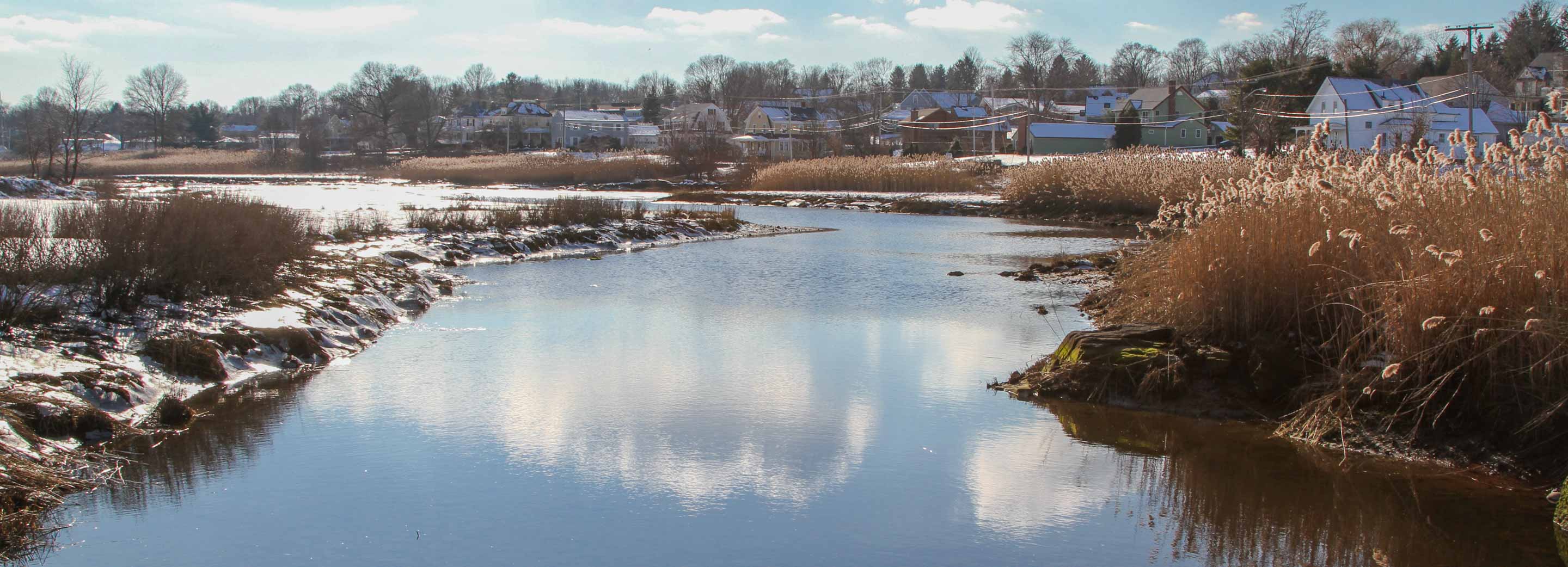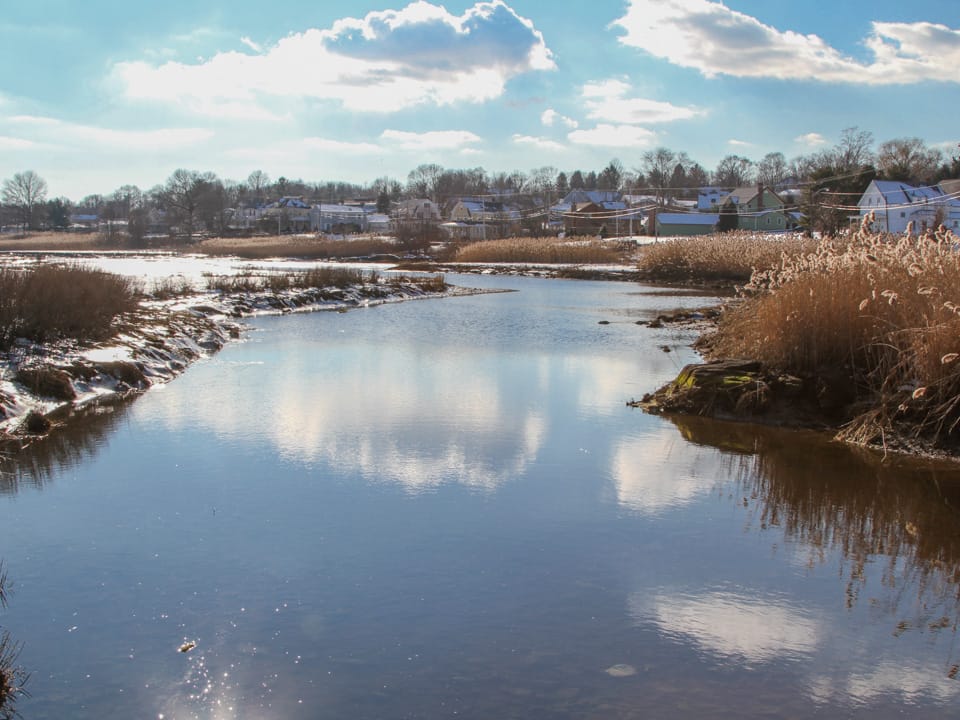TAUNTON, MA – The Southeastern Regional Planning and Economic Development District (SRPEDD), as part of the Resilient Taunton Watershed Network (RTWN), has been awarded a two-year, $100,000 Southeast New England Program (SNEP) Watershed Grant to help local communities improve resilience to environmental stressors. This SNEP grant is funded by the U.S. Environmental Protection Agency (EPA) through a collaboration with Restore America’s Estuaries (RAE).
RTWN was created in 2014 as a multi-organizational partnership with the goal of fostering ecological, social, and economic resilience within the Taunton watershed. The network works with municipalities to address climate change and development pressure within this biologically-unique watershed, which is developing at the fastest rate in the state. The river itself is the longest undammed tidal river in New England, is home to the largest herring run in New England, and was designated a National Wild and Scenic River by Congress in 2009.
As development and climate change impacts threaten the river’s health, conservation and resilience planning on a regional scale are essential. This type of comprehensive planning can effectively address human and infrastructure vulnerability, ecosystem health, and water quality, and can help direct adaptation and mitigation action throughout this low-lying watershed.
“Restore America’s Estuaries is pleased to support the RTWN network through SNEP Watershed Grants,” said Thomas Ardito, director of the grant program for RAE. “RTWN is one of the most dynamic multi-community partnerships in New England, and this kind of regional collaboration is the future of effective environmental management.”
As part of this grant, the RTWN project partners, which in addition to SRPEDD include Mass Audubon, The Nature Conservancy (TNC), and Manomet, will help local communities make progress toward improved resilience in several ways, including reviewing local bylaws and regulations to encourage climate-smart nature-based solutions in the towns of Berkley, Dighton, and Freetown. Since each of the different communities are coming from different staff capacity and technical abilities, this technical assistance, paired with tailored peer-to-peer training, will allow communities to move forward from where they’re at.
The project will also continue RTWN’s current outreach to identify and assist implementation of opportunities for environmental restoration throughout the region, including local projects that can improve climate resilience, stormwater management, and water quality such as dam removals, culvert upgrades, or building bioretention areas.
Bill Napolitano, Senior Environmental Planner at SRPEDD says, “This SNEP grant funding will enable the RTWN to expand upon and advance its resiliency planning efforts in the Taunton River and Narragansett Bay Watersheds, as well as share some of the innovative approaches to municipal vulnerability assessment currently employed in the Commonwealth with our state and community partners in Rhode Island.”
Finally, the grant will support establishment of watershed management goals and metrics, which can serve as a model for other regions throughout the Commonwealth and across the region to encourage watershed-scale conservation and restoration planning efforts between diverse stakeholders and partners.
Southeast New England Program (SNEP) Watershed Grants are funded by the U.S. Environmental Protection Agency (EPA) through a collaboration with Restore America’s Estuaries (RAE). For more on SNEP Watershed Grants, see www.snepgrants.org





 Back to all
Back to all

